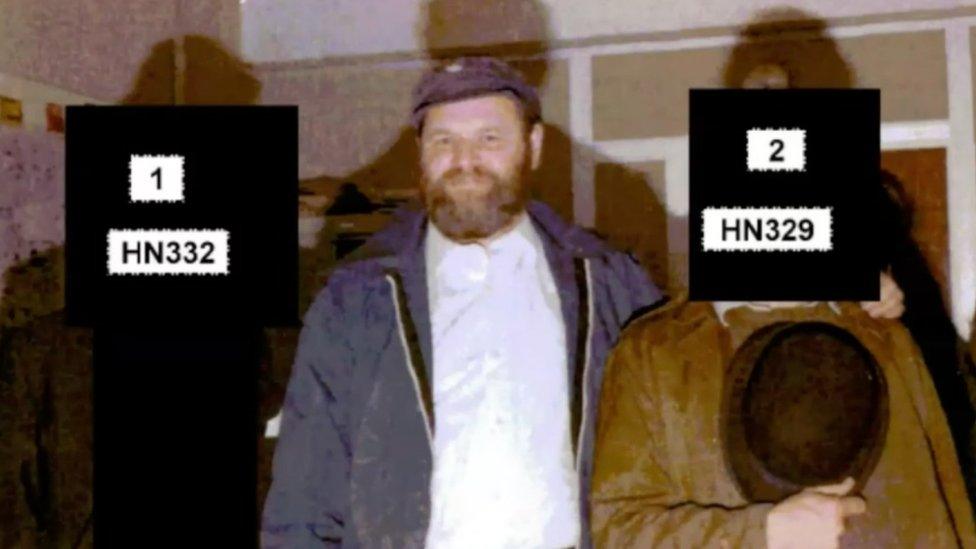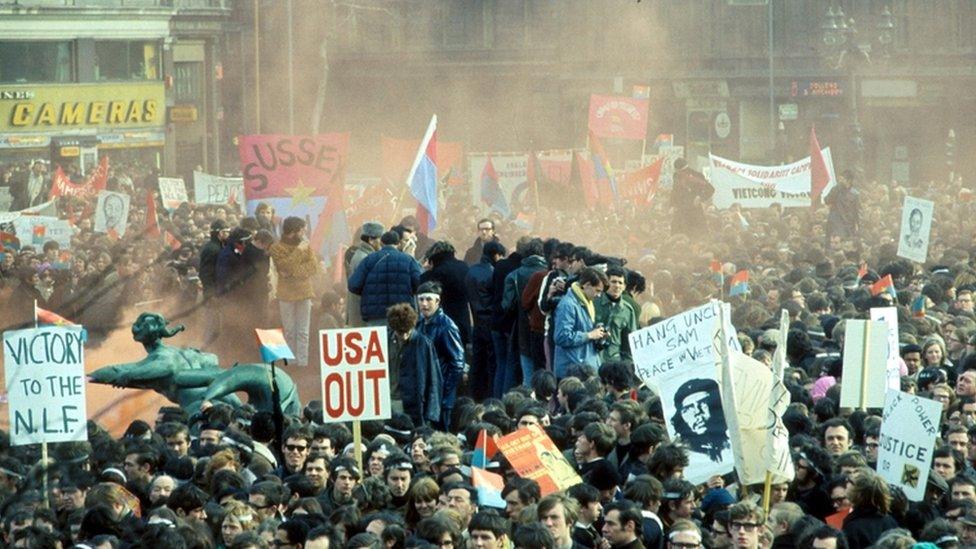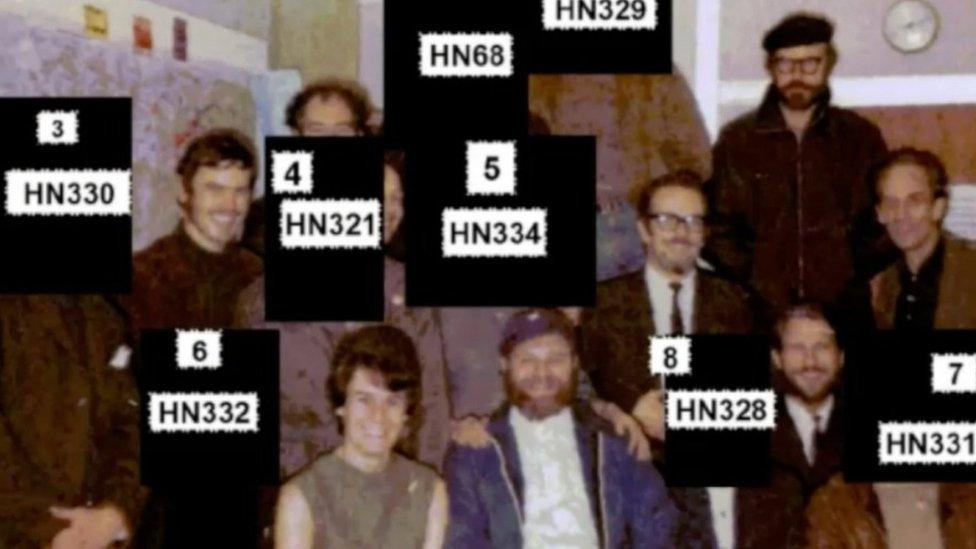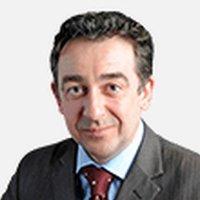Undercover officer targeted 'anti-establishment' left
- Published

HN-329 his boss, Conrad Dixon, and another officer
A former undercover police officer has admitted for the first time that the Metropolitan Police set out half a century ago to infiltrate left-wing political groups, even if they posed no threat to the public.
The officer - the first to give evidence at a mammoth public inquiry - said his task had been to gather intelligence on anti-establishment campaign groups threatening the political status quo in the late 1960s.
The officer's evidence is the first insider testimony to be put before the Undercover Policing Inquiry that shows that Scotland Yard's Special Demonstration Squad (SDS) targeted groups merely because of their aims, rather than because they threatened violence.
During this first day of evidence from a former police officer, Sir John Mitting, the inquiry chairman, threatened to silence a barrister acting for some of those who say they were unjustly spied on.
Codenamed HN329, the elderly retired officer was a founding member of the SDS that's accused of serial abuses over decades, including miscarriages of justice, unjustified political operations and tricking women into sexual relationships.
The SDS was disbanded in 2008. Six years ago Theresa May, when she was home secretary, ordered an inquiry into its activities.
What is the Undercover Policing Inquiry?
Undercover Policing Inquiry: We want answers
HN329 told the inquiry he joined the SDS in August 1968. It had been set up following an anti-Vietnam War protest in March that year that led to disorder in London.
The officer invented a cover name, "John Graham", and grew a beard and his hair long.
Donning a jacket with a leopard skin lining and a pair of Hush Puppy shoes, he set out to blend into the Vietnam Solidarity Campaign (VSC), a left-wing alliance planning an October protest in London.

Police infiltrated left-wing groups during protests
'Anti-establishment' targets
Operating under the command of Chief Inspector Conrad Dixon, HN329 said his job had been to gather intelligence on people trying to undermine the status quo and the political establishment.
"Ultimately, any group that came to notice as a result of causing trouble, for example throwing bricks through shop windows and actions of that sort, would have been reported on if they were anti-establishment in a political sense," said the officer in his opening statement, external.
He then added: "It may well be that a particular group is completely harmless but we would be asked to find out what their objectives were. A file would then be opened."
David Barr QC, the barrister leading questioning for the inquiry, asked what the officer meant by "anti-establishment".
"Well, it was people who were opposed to the current political situation, or the current government," he replied.
One crucial meeting of the VSC was infiltrated by a total of nine officers including HN-329 - but the officer said that during all his time with the SDS he uncovered no crimes and saw no violence.

Founding officers - 1968 photograph of the Special Demonstration Squad
Recollecting his career with the squad, HN329 said: "The original group, from Conrad Dixon down, were the finest representatives of Special Branch. They were excellent officers who did exactly the proper job."
Chairman clashes with barrister
Rajiv Menon QC, representing some of the victims of alleged undercover abuses, asked to put further matters to the officer, saying the inquiry needed to hear more specific information about his activities and the directions he had been given by superiors. Under the inquiry's rules, lawyers for the participants are required to send suggested topics for questions to the lead barrister, so that he can then examine a witness on behalf of all.
Sir John Mitting, the chairman, ruled out all the additional topics proposed by Mr Menon, other than one specific set of questions.
When the senior barrister sought to further explain his position, the chairman cut across him and said: "No, you may not. I'm sorry.
"You may ask your questions, or you will be silenced."
